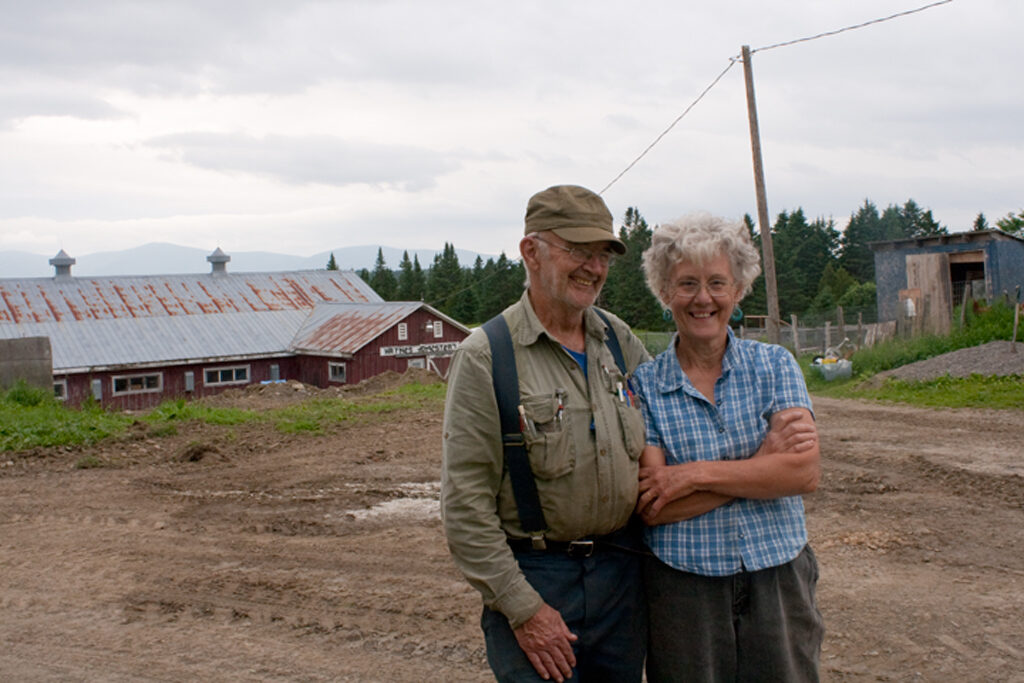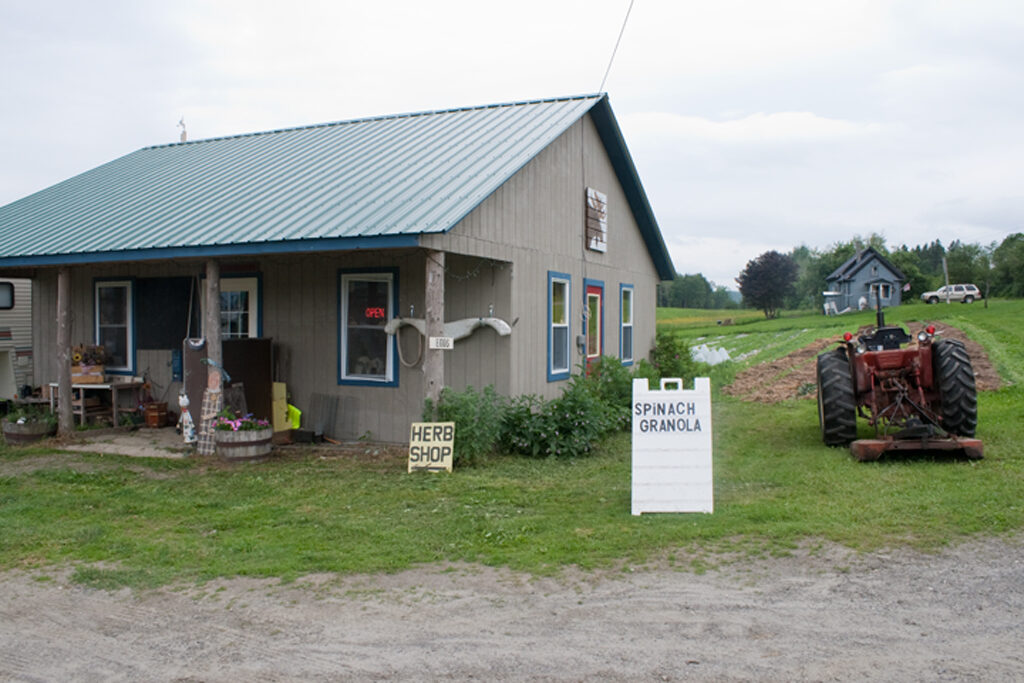By Helen Brody (May 20, 2013)

Tucked away among the grim stories that attended the wrenching 1920s Depression, were occasional nuggets of hope and even some happy times. Consider, for instance, the purchase of a bankrupt farm by the father and mother of Haven Haynes in Colebrook, New Hampshire. It was most assuredly not a time of abundance for the Haynes family, but with the dint of hard work and uncommonly positive grip on the world around them, there was food on the table and a firm roof over their heads. By raising their own food and bartering eggs for other groceries at the First National market, the Haynes fed three children.
In 1969, son Haven, wanting his children to experience life on the same farm as he had, bought the land from his brother Keith. Wife Elaine, having farming in her blood, readily agreed to the move to the land where Haven’s schoolhouse remains today.
The original Haynes Homestead began as a dairy farm and Elaine and Haven continued in that tradition by milking 60 Holsteins. In 1984, due to an injury to Haven, the family decided to sell their herd of milking cows and switch to Herefords for beef. “But then in 2000, we got out of that,” sighed Elaine. “Too much work for little reward.”
So as the farm had begun in those lean days of the Depression, Haven and Elaine began putting their land back into becoming a fully self-sustaining farm. Currently, Elaine raises Bard Rock chickens and Rhode Island Reds for eggs and meat. She raises guinea hens and geese for the family as well. The birds also fertilize her crops with their manure. Her vegetables are grown as organically as possible. She makes ten gallons of compost tea at a time, plants dwarf clover between rows of vegetables and plants buckwheat around the border of her garden to control weeds and then plows them under in the fall.
To allow her to plant her winter squash a bit earlier, she uses plastic garden cones that act as greenhouses, and mounds soil around them to prevent them from blowing away and to help to keep aphids and bugs away. “They are a great asset in the North Country where summer warmth comes later than in the rest of the state.”
Instead of selling her eggs at the local supermarket as her in-laws used to did, Elaine sells them at the North Country Marketplace & Salvage in Colebrook and two other farmers’ markets. In the early summer she sells her mesclun salad mix and baby spinach “but they take a lot of time to pick and wash.” Come the end of June her2 acres of pick-your own strawberries come in (she is planting two more acres for next year) and later she concentrates on winter vegetables such as winter squash, broccoli, cabbage, Brussels sprouts and pole beans. Her greenhouse offers the season’s earliest tomatoes and cherry grape tomatoes at the market.
Also available at the farm are the cooking and medicinal herb blends, soaps, and teas that she prepares and packages in Grammy Haynes Little Herbal Shop located at the entrance to the property. Baked goods, when she has the time, fill out her sales list.
And finally, Sunday is family day. Every Saturday night Elaine makes baked beans and homemade bread, lots of it. “We never know how many are coming,” she says with a sparkle in her voice as she anticipated her children and grandchildren descending on the farm to enjoy her food and happy times on the old family homestead.

The Haynes Homestead
Elaine and Haven Haynes
172 Harvey Swell Road
Colebrook, NH 03576
603-237-4395
Retail Sales: ((Direct to the customer sales) From the Farm – best to call first Pittsburg Farmers Market Berlin Farmers Market North Country Marketplace and Salvage, Colebrook, NH
http://www.marketplaceandsalvage.com
Wholesale: (bulk sales to markets, restaurants, stores & schools)
North Country Co-operative
Photos Credit: Leslie Tuttle (www.leslietuttle.com)
